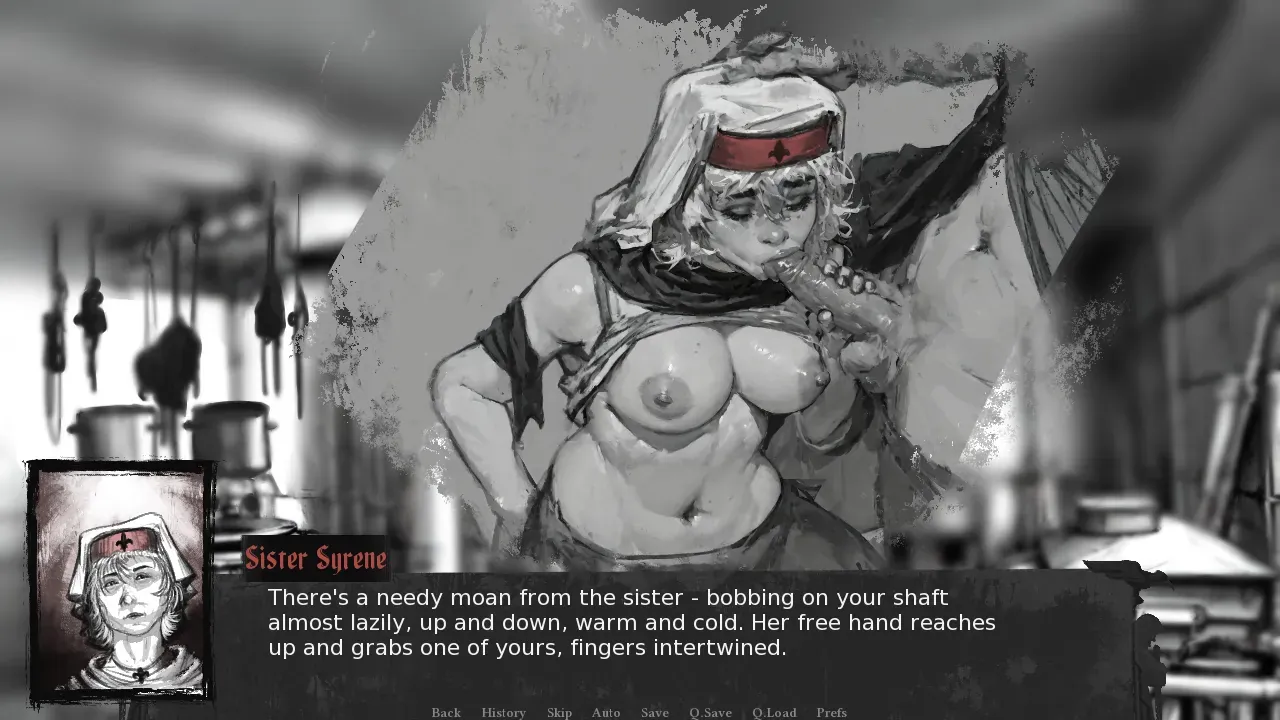
Lessons in Love
Play Lessons in Love
Lessons in Love review
Exploring the Intricacies and Gameplay of Lessons in Love Visual Novel
Lessons in Love is a captivating visual novel game that immerses players in a complex narrative centered around a mysterious protagonist known as Sensei. This game combines intricate storytelling with choice-driven gameplay, where every decision shapes relationships and unlocks unique events. In this article, we explore the core elements of Lessons in Love, its gameplay mechanics, character development, and how it stands out in the visual novel genre.
Understanding the Story and Characters of Lessons in Love
Ever wake up somewhere completely unfamiliar, with no memory of how you got there or even who you really are? 😵 That’s the disorienting, compelling hook of the Lessons in Love story. You are thrust directly into the worn-out shoes of Sensei, a man who finds himself consciousness-first into the body of a teacher in the seemingly quiet coastal town of Kumon-mi. This isn’t your typical dating sim; it’s a deep, often unsettling exploration of identity, memory, and the connections we forge. The Sensei character is our vessel for this journey, and his personal turmoil is the engine that drives everything forward.
This game completely redefined what I expect from the genre. I remember starting it, expecting lighthearted school antics, and within hours I was totally consumed, frantically taking notes like I was prepping for a final exam on existential dread. 🤯 It’s that powerful. The Sensei internal struggle isn’t just a background detail; it’s the core of the experience. You’re not just choosing which girl to spend time with; you’re desperately trying to piece together a shattered past while navigating a present that feels increasingly unstable and surreal.
### Who is Sensei? The Protagonist’s Journey
So, who exactly is the man we play as? The Sensei character is a fascinating paradox. On the surface, he’s the adult in the room—a teacher responsible for a class of unique and often troubled students. But underneath, he’s just as lost, confused, and vulnerable as they are. He’s a blank slate with ghostly impressions of a life he can’t recall, which creates a constant, gnawing sense of dissonance. Am I a good person? What happened to me? Why am I here? These questions haunt every interaction.
His journey is the heart of this psychological visual novel. It’s less about becoming a hero and more about surviving—emotionally and mentally. The choices you make don’t just affect relationships; they actively shape Sensei’s crumbling sense of self. Will you lean into cynicism and detachment as a defense mechanism, or will you try to embrace compassion and connection, despite the risk? This Sensei internal struggle between self-preservation and genuine care for others is what makes his story so profoundly human and relatable. You’re not guiding a perfect paragon; you’re steering a flawed, scared individual through a psychological storm. 🌪️
My Tip: Don’t try to metagame or guess the “right” choices early on. Lean into your gut feelings. Your authentic reactions will craft a far more personal and impactful story, making the revelations down the line hit much harder.
### Key Characters and Their Roles
The students and faculty of Akademi High are far more than just potential romance options; they are essential pillars of the Lessons in Love story. Each character is a complex puzzle piece, and your relationships with them are the primary way you uncover the truth about Kumon-mi and yourself. The cast of visual novel characters is incredibly well-developed, each with their own intricate backstories, hidden depths, and personal demons that mirror or challenge Sensei’s own.
Getting to know them is a slow, rewarding burn. Some put up fierce fronts, others are deceptively gentle, and all of them are hiding something. Unraveling their secrets often feels like you’re pulling a thread that could unravel the entire world—and sometimes, it does. The strength of these visual novel characters lies in their imperfections; they feel like real people dealing with real, often heavy, issues.
Here’s a quick overview of some of the pivotal figures you’ll meet:
| Character | Key Traits | Role in the Story |
|---|---|---|
| Amamiya Makoto | Guarded, Observant, Cynical | Often acts as a grounding force and a source of cryptic warnings. Her sharp eyes miss very little. |
| Shinonome Sana | Energetic, Loyal, Insecure | Represents a desire for normalcy and genuine friendship amidst the growing weirdness. |
| Yamada Asami | Manipulative, Charming, Calculating | Often serves as an antagonist, challenging Sensei’s authority and morality with her schemes. |
| Kuroda Kyouko | Intelligent, Aloof, Secretive | Her scientific mind and knowledge often provide crucial clues to understanding the unnatural events. |
| Fujimoto Ayumu | Gentle, Motherly, Burdened | Offers a sense of stability and care, but carries a deep sadness tied to the town’s mysteries. |
### Themes and Narrative Style
Let’s be clear: Lessons in Love is a mature storytelling game in the truest sense of the word. It doesn’t use maturity for shock value; it uses it to explore complex, often difficult game narrative themes with startling honesty. We’re talking about themes of identity erosion, existential horror, trauma, the nature of reality, and the heavy weight of responsibility. It’s a game that asks what it means to be a person when your very past is a question mark. 🤔
The narrative style is a masterclass in slow-burn tension. It expertly blends moments of slice-of-life normalcy with sudden, jarring dips into the bizarre and terrifying. This is where the famous (or infamous) “Happy Events” come in. These are not just cute bonus scenes; they are vital, often emotionally charged moments of connection that provide respite and deepen bonds right before the next wave of mystery crashes down. The contrast is breathtaking and is a huge part of what makes this a standout psychological visual novel.
The storytelling is also deeply non-linear and reactive. Your choices have tangible, long-term consequences on the narrative’s tone and which threads of the mystery you unravel first. You might play through twice and have two wildly different understandings of the Lessons in Love story. This design makes you an active participant in the confusion, perfectly mirroring the Sensei character‘s own desperate search for answers. It’s a bold approach to mature storytelling game design that trusts the player to handle complexity and ambiguity.
Playing this game is an investment, but one that pays off immensely. It stays with you, prompting you to think about its game narrative themes long after you’ve closed the game. It’s a haunting, beautiful, and unforgettable experience that proves visual novels can be profound works of psychological storytelling.
Lessons in Love offers a rich, immersive experience that blends deep storytelling with meaningful player choices. Its complex characters and mature themes provide a unique narrative journey that challenges players to think carefully about their decisions. Whether you are drawn to the psychological depth or the interactive gameplay, this visual novel rewards exploration and thoughtful engagement. Dive into Lessons in Love to uncover its many layers and discover the impact of your choices on Sensei’s story.





















